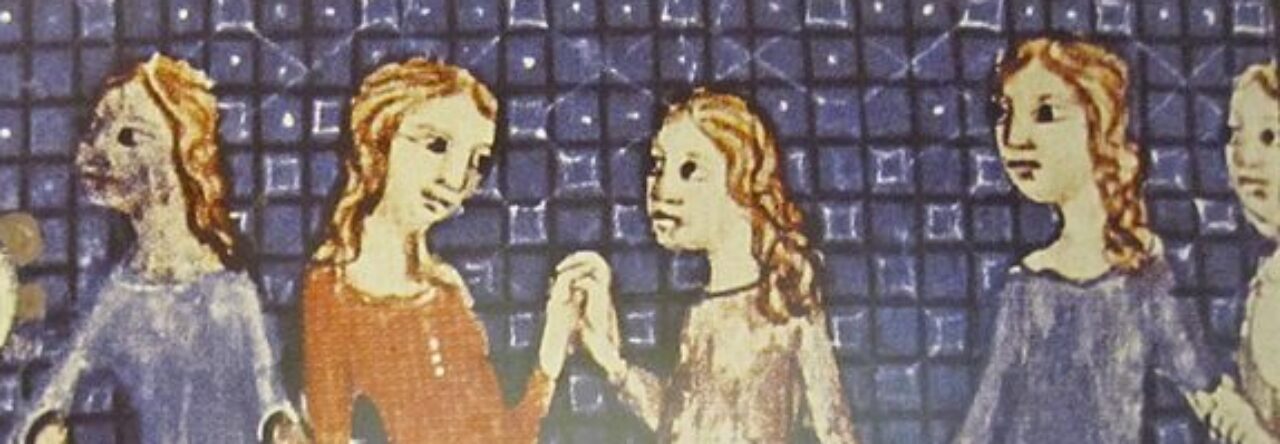For this option, you can choose any topic related to women and gender in medieval Europe that interests you! Click on the resources tab for some suggestions.
For specific assignment details, see below.
Proposal
The proposal for your essay should include:
- A list of the potential research questions that will guide your project. These questions should be open-ended. For example, you might ask “What were the experiences of Jewish women in medieval Catalonia?” instead of “Did Jewish women have any agency in medieval Catalonia?”
- A discussion of why these research questions interest you and how you might go about answering them. At this point, you should NOT have a thesis statement as that will develop as you do further research. (two to three paragraphs)
- Two shorter primary sources or one longer primary source. Please include a brief summary of these sources and why you think they will be helpful for your project.
- Four secondary sources (academic articles or books). Please include a brief summary of these secondary sources and why you think they will be helpful for your project. At this point of your research, you only need to have read one of them (the article you focused on for your Source Analysis).
Requirements for the Essay
- 2000-2500 words PLUS citations.
- Bibliography formatted according to the style of your discipline.
- Citations formatted according to your discipline
STEP ONE: WHERE DO I START????
Part One of the research project is designed to help you get started. Through your analysis of a primary and secondary source, you can raise questions about your topic and identify particular themes.
STEP TWO: SECONDARY RESEARCH
Your analysis of a primary and secondary source should help you develop some broad questions and themes for your project. Part Two is designed to help you formulate research questions that can guide your research path.
After doing so, read two or three other secondary sources to see how historians have viewed your broader topic.
- What are their answers to the questions you’ve posed?
- What type of evidence do they use? Do you agree or disagree based on what you’ve read yourself in your primary source? Does this primary source evidence support or refute their assertions?
- What view of your topic do these secondary sources provide? What kind of issues or debates regarding your topic do they explore?
STEP THREE: DEVELOPING YOUR THESIS STATEMENT
What is a thesis? The thesis is the controlling idea around which you construct the rest of your paper. In a history paper, the thesis generally explains why or how something happened. Every word of your paper should support your thesis. Information you do not directly relate to your thesis will appear irrelevant. This means, of course, that in a paper with a weak or no thesis, much of the paper will appear to be irrelevant and unguided.
The thesis is a scholarly argument. A history paper takes a stand on a historical issue or problem, and attempts to develop a coherent and persuasive line of thought intended to convince the reader of the validity of that stand. Your thesis is the concise statement of your argument.
A good thesis derives from a good question. Since the thesis is your conclusion to a scholarly argument, there must be a clear question at stake. This question is known as your research question. A thesis which does not answer a question, or answers a simple or obvious question, is not a thesis. You need to ask thoughtful questions of your topic and primary source material to develop a good thesis. The best theses are good precisely because the questions they answer are significant, complex, and original.
STEP FOUR: ORGANIZING YOUR PAPER
The Basic Structure of a History Research Paper:
INTRODUCTION
- Introduce the problem
- Define key terms
- State the thesis (which should be the answer to your research question)
THE BODY
- How is your paper organized?
- Paragraphs
- Topic sentence
- Argument supporting topic sentence
- Evidence supporting your argument
- Connect evidence back to your topic sentence
CONCLUSION
- Restatement of thesis
- Significance of thesis (why should we care about this problem?)
